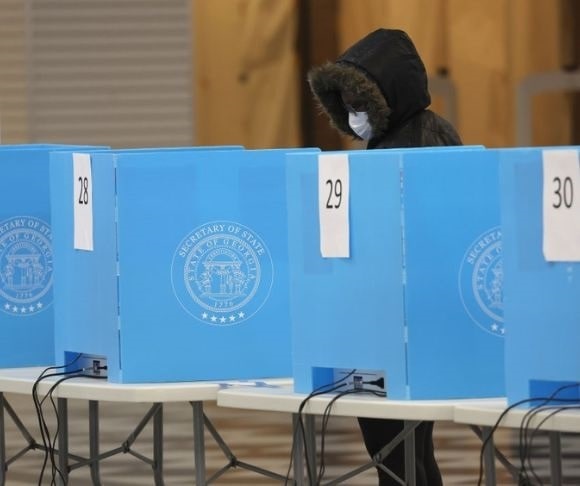Republican-led legislatures are hoping for a tremendous increase in political power if they can convince the Supreme Court to adopt the independent state legislature theory. Wednesday, December 7, the Court heard Moore v. Harper, which the ACLU has called “the Supreme Court Case That Could Upend Democracy.” While the case has blockbuster potential, based on the oral arguments, Court watchers expect a much less consequential decision.
What does legislature mean?
[substack align=”right”]Proponents of the independent state legislature theory propose that the US Constitution gives the power to regulate elections for federal office to state legislatures. That is to say, not state governments with all branches participating, but with legislatures exclusively. The claim comes from the Elections Clause and the Presidential Electors Clause from the federal Constitution, granting certain powers not to states but “the Legislature thereof.” Does that mean a body of lawmakers may implement its will regardless of what the governor wants or how a state supreme court decides? That is the issue now before the US Supreme Court.
Attorney Neal Katyal argued the case against the legislatures. He came at it from the right, which is not where Katyal usually pitches.* He said: “Justice Thomas, if I may, in two decades of arguing before you, I have waited for this precise case because it speaks to your method of interpretation, which is history. And the founding evidence here is overwhelming …” The former acting Solicitor General under President Obama then gave four points of historical arguments that buoyed his case. While he may not have convinced Justice Clarence Thomas, other conservatives seemed to appreciate his approach.
The Practical Approach
Solicitor General Elizabeth Prelogar also argued for a “conservative” approach to keep the status quo. She said:
“Their theory would invalidate constitutional provisions in every single state, many tracing back to the founding. That would sow chaos on the ground as state and federal elections would have to be administered under divergent rules and federal courts, including this Court, would be flooded with new claims, often at the 11th hour, in the midst of hotly contested elections.”

(Photo by Justin Sullivan/Getty Images)
In November of 2021, the North Carolina legislature re-drew the state’s congressional district map in response to the new Census. The Republican-dominated legislature’s new map gave Republicans much improved chances to win seats in Congress. Democrats sued in state court to prevent the new map from taking effect, arguing that it violated the state constitution. In February 2022, the North Carolina Supreme Court stopped the use of the new districts. It ruled the judiciary had the right to step in because it “has the responsibility to protect the state constitutional rights of the citizens.”
The US Supreme Court rejected an emergency appeal from the North Carolina legislature to stop the state court from tossing out the legislature’s map. Justice Samuel Alito wrote a dissent from that refusal, signed by Justices Thomas and Neil Gorsuch. Meanwhile, the case returns for a full hearing on the merits, and the Court’s left wing was openly hostile to the theory. Justices Sonia Sotomayor, Elena Kagan, and Ketanji Jackson are expected to rule against the legislatures. If that math is correct, two of the remaining Justices – Roberts, Brett Kavanaugh, or Amy Coney Barrett – would need to agree with the independent legislature theory. Chief Justice Roberts seemed skeptical of the theory at oral argument, and Justice Kavanaugh has shown a preference for finding resolutions with small footprints over large ones.
A decision is expected in the new year.
Woke Lawfirm – Conservatives Need Not Apply
*A sidenote – Katyal is currently a partner at Hogan Lovells. The huge law firm just made news after it fired a semi-retired partner for the crime of being pro-life. In her recent op-ed for the Wall Street Journal called “No Dissent on Abortion Allowed at Hogan Lovells,” Robin Keller details how her criticism of Roe, and abortion rates amongst black Americans, made her persona non-grata at the firm.




